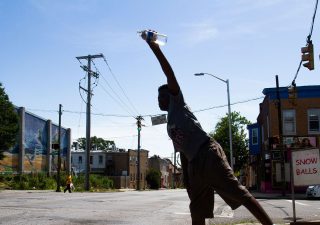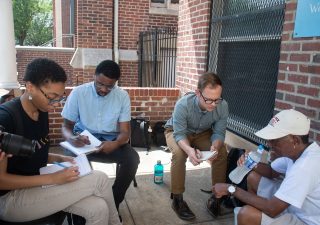This collaboration with NPR and Wide Angle Youth Media vividly illustrated the price humans pay as the planet gets hotter. With an abundance of concrete and little shade, urban heat islands like one in Baltimore are getting hotter faster and staying hotter longer. And the people who live there are often sicker, poorer and less able to protect themselves.The investigation, using heat and humidity sensors the students built, found that rising temperatures in such neighborhoods will mean more trips to the hospital for heart, kidney and lung ailments. Drugs to treat mental illness and diabetes won’t work as well. And pregnant women will give birth to more children with more medical problems. Solutions exist. But growing more trees to undo decades of discriminatory redlining, and rebuilding streets and sidewalks to reflect the heat are expensive — and take time.
A summer in Baltimore’s hottest neighborhoods
A look at how and why we reported the series.


